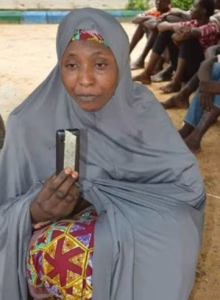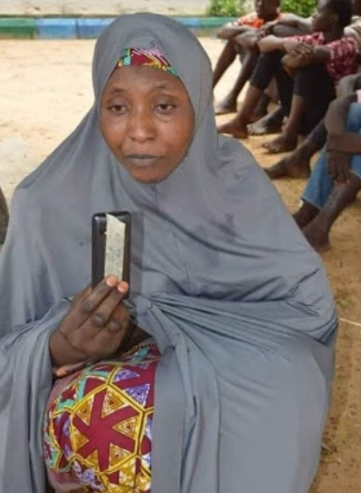# Kano Housewife Sentenced to Death: A Sinister Crime Unfolds
Justice Served: The Shocking Case of Fadila Adamu
In a verdict that sent shockwaves through Kano State, a High Court on Friday sentenced Fadila Adamu to death by hanging for the gruesome murder of eight-year-old Aisha Sani. The case, which has gripped the nation since 2019, exposes the depths of human depravity and raises pressing questions about crime, justice, and the fragility of trust within communities.
A Sinister Betrayal: Childhood Friendship Turns Deadly
Aisha Sani, an innocent girl returning from Islamiyya school, never made it home. Instead, her trusted guardian—her mother’s childhood friend—lured her into a terrifying trap. Fadila Adamu, betraying years of friendship, kidnapped the minor and later disposed of her body in a well at Tukuntawa Quarters, sealing the young girl’s fate.
The discovery of Aisha’s lifeless body two weeks later sent waves of grief and anger through the Gandu Albasa Quarters. How could someone entrusted with the safety of a child commit such a heinous act?
The Trial: Evidence That Sealed Her Fate
During the emotionally charged trial, the prosecution, led by Lamido Abba-Sorondinki, laid out damning evidence against the accused:
Eyewitness Testimonies: Seven witnesses detailed the events leading up to the child’s tragic demise.
Conflicting Statements: The defendant attempted to mislead her own sister, claiming the child’s mother had traveled to Ghana and entrusted Aisha to her care.
Medical Examination: The autopsy confirmed Aisha’s cause of death, solidifying the case against Adamu.
Legal Implications: The charges under Sections 274(b) and 221(a) of the Penal Code left no room for ambiguity—Adamu’s actions warranted the harshest punishment.

Despite her defense team presenting four witnesses, including the defendant herself, the court found the evidence against her overwhelming. Justice Yusuf Muhammad-Ubale ruled decisively, declaring that the prosecution had proven its case beyond reasonable doubt.
A Precedent for Justice or a Case for Reform?
While many celebrate the court’s decision as a victory for justice, others question the effectiveness of capital punishment in curbing violent crimes. Does the death sentence deter such horrifying acts, or does it merely serve as retribution?
This case underscores the need for heightened child safety measures, stronger community vigilance, and psychological evaluation mechanisms to prevent future tragedies.
Final Thoughts: A Society’s Collective Grief
The murder of Aisha Sani is a painful reminder of how trust can be weaponized. A family’s worst nightmare unfolded at the hands of someone they considered part of their inner circle. As Kano State prepares to carry out the court’s judgment, the community mourns Aisha, a young girl whose life was stolen too soon.
Her story is now etched into the annals of justice—a dark tale of betrayal, but also of accountability. The question remains: how do we, as a society, ensure that such tragedies never happen again?


